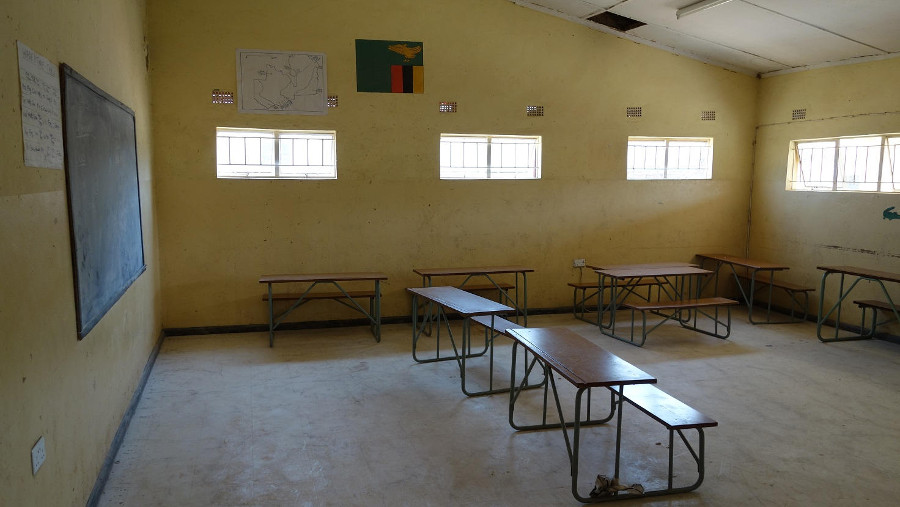Education in Zambia

It might seem astonishing that such a project is necessary. After all, according to the free basic education policy1 introduced in Zambia in 2002, school attendance is free of charge for any pupil up to grade 7.2 And indeed, on first sight, the situation has thereafter quite improved: when in 2002 only 73% of all children fitting for first grade have attended school, by 2011 these numbers increased to 92% according to UNESCO3.
However…
In practice most schools still used to demand a school fee for grades 1-7 because their funding was insufficient. This exact situation was at the start of the Schulfee project when we realised that even an amount as small as EUR 13, asked for by the schools, was too much to ask from many families. Luckily, during the last years the free basic education policy finally came into practical effect. Hence the project’s focus moved towards higher grades in 2017. 4
On a different note, the UNESCO statistics reveal that in 2008 only 53% of elementary school pupils finished their basic education - almost half of the pupils drop out of school beforehand.
The reasons are, among others, that children and juveniles have to take part in the daily labour of the family in order to ensure a sufficient income. This leaves them with no time to continue their educational career, which would on the contrary even worsen the financial worries starting from grade 8. On our journey through Souvern Province we thus witnessed children selling groceries or housewares on the markets or at the side of the streets.
Looking beyond the time of basic education, when the public funding of the free basic education policy no longer applies, the school fees drastically increase5, leaving no surprise for the fact that of the few juveniles completing grade 7, only two thirds (2008 - only 61% in 2010) continue to grades 8 and higher. This is definitely not sufficient for a self-determined future of these young people.
What to do?
There probably are many more factors playing a role in this desolate educational situation. We cannot know all of them, let alone change them. Therefore this project will only address the personal financial deficiencies hindering a girl or boy to proceed their educational path. This is a point where we can actually help.
Thank you for your support!
-
MDG 2 - Universal Primary Education in Zambia. Gov.uk Case Study. Department for International Development, 19 Sept. 2011. Web: 21 Nov. 2013. https://www.gov.uk/government/case-studies/mdg-2-universal-primary-education-in-zambia ↩︎
-
Education Fact Sheet - Zambia. Web: 24. Jan. 2014. http://www.sacmeq.org/sacmeq-members/zambia/education-fact-sheet ↩︎
-
Country Profiles - Zambia. UNESCO Institute for Statistics. Web: 24. Jan. 2014. http://www.uis.unesco.org/DataCentre/Pages/country-profile.aspx?code=ZMB®ioncode=40540 ↩︎
-
Confer our Anual Report 2017 ↩︎
